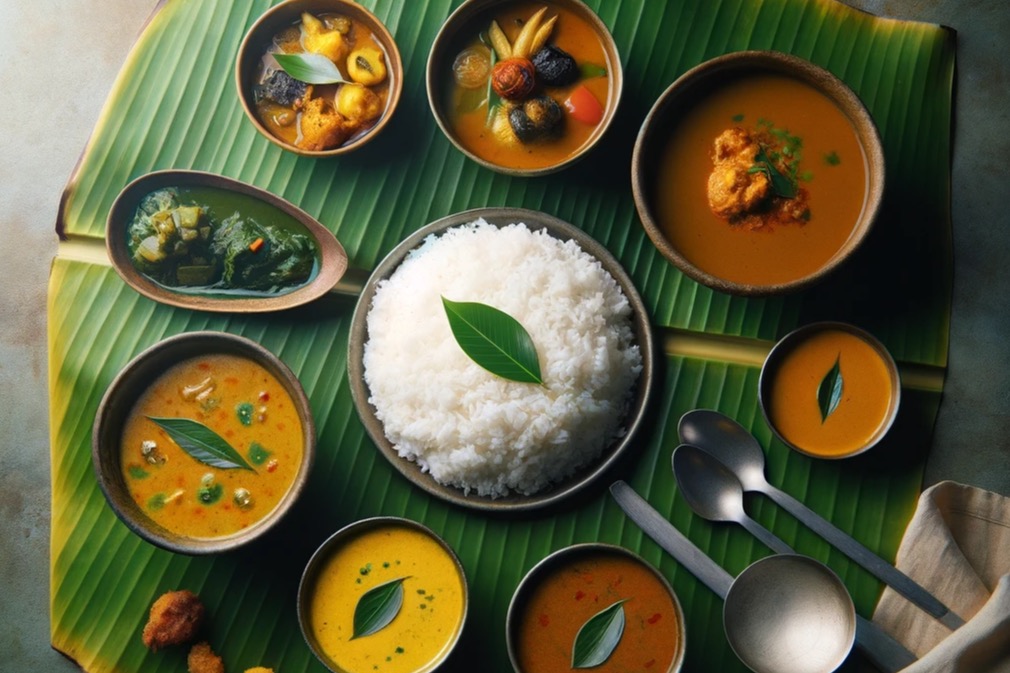
In the vibrant mosaic of global cuisines, each has its unique identity, resonating with its people's cultural and historical ethos. Among these, Tamil cuisine stands out with its rich tradition and distinctive flavours, yet often needs to be represented. As we explore the culinary world, it's time to ask: Why is Tamil cuisine not getting the recognition it deserves in the culinary world?
Meet Tamil singles looking for meaningful connections from Canada, USA, UK & more! Join here.

At the heart of Tamil culture lies a profound connection with food, where culinary practices are not just about sustenance but a celebration of heritage. The Tamils, known for their warm hospitality, often revel in friendly debates over who pays the restaurant bill, symbolising their deep-rooted value of sharing and hosting. These practices are not just customs but narratives of a culture that takes immense pride in its culinary traditions.
This rich culinary history is chronicled extensively in Tamil literature, including the Sangam texts and the ancient Pre-Sangam Tamil grammar book, Tholkapiyam. These works provide insights into a cuisine that is more than just a collection of recipes; it's a cultural expression shaped by specific guidelines on selecting ingredients, cooking methods, spices, utensils, and even the etiquette of serving and eating. The distinctiveness of Tamil cuisine lies in its intricate balance of flavours, an art honed over centuries.
It's imperative to acknowledge that world cuisines, including Tamil cuisine, are dynamic, evolving through migration, conquest, and the influences of colonial and global interactions. This evolution, however, does not dilute the authenticity or the cultural significance of these cuisines. Instead, it enriches them, allowing them to adapt and flourish in diverse environments while retaining their unique identity. Like many others, Tamil cuisine has navigated through these changes, embracing new influences while steadfastly preserving the core of its culinary heritage. This balance of adaptability and tradition makes Tamil cuisine, and indeed all world cuisines, a fascinating study of cultural resilience and diversity.
 Exploring the Musical Alchemy of Tamil Artists Yanchan Rajmohan and Sandeep Narayan: A Deep Dive into Their Album 'Arul' - A Fusion of Carnatic and Hip-Hop Yanchan and Sandeep have transformed Carnatic music, offering a fresh rendition that incorporates multiple musical genres in an accessible way. TamilCulture.com
Exploring the Musical Alchemy of Tamil Artists Yanchan Rajmohan and Sandeep Narayan: A Deep Dive into Their Album 'Arul' - A Fusion of Carnatic and Hip-Hop Yanchan and Sandeep have transformed Carnatic music, offering a fresh rendition that incorporates multiple musical genres in an accessible way. TamilCulture.com However, a perplexing trend has emerged in the global culinary landscape. Many restaurants serving authentic Tamil dishes are often labelled under the broad categories of 'South Indian' or 'Sri Lankan' cuisine. While these labels aren't inaccurate, they overlook the rich diversity within these regions. South India alone boasts four distinct culinary traditions, as does Sri Lanka. This generalisation not only dilutes the unique identity of Tamil cuisine but also does a disservice to the culinary diversity of the entire region.
The oversight becomes more glaring considering the significant Tamil diaspora. In the UK and Canada alone, the Tamil population exceeds a million. This substantial presence signifies a need for the correct representation of Tamil cuisine in the global culinary scene. Branding it accurately in restaurants is not just a matter of cultural pride but also a smart business strategy in an era where authenticity in cuisine is highly valued.
The global food industry has evolved, with customers increasingly discerning about the authenticity and uniqueness of their culinary experiences. This shift in customer preferences presents an opportunity for Tamil cuisine to carve out its niche. By branding it correctly, restaurants can attract a wider clientele, including non-Tamils curious about exploring authentic flavours.
In light of this, there's a pressing need for Tamil restaurants globally to re-evaluate their branding strategies. Adopting a tagline such as 'Taste of Tamil Cuisine' could significantly impact how these culinary traditions are perceived and appreciated. It's a call to embrace and showcase the rich culinary heritage that defines Tamil heritage and culture.
What is my Identity? It's a question that we all seek to answer in our own ways throughout our lives. Each episode of Identity spotlights a different creative, some from the Tamil community and some from outside it, who will be chatting about how we take ownership of our narratives, art, politics and of course who we are. We hope to inspire you through their unique stories of seeking and finding Identity. Catch Season 1 below!
- Shakthi / Theatre, Intergenerational Trauma and Australian Tamil Identity
- Identity Podcast: Anuk/ Language, Grief and Tamil Community
- Maral/ Art, Belonging & Armenian-Iraqi-Canadian Identity
- Shuba/ Music, Feminism and Dual Identities
This issue transcends mere labelling; it's about acknowledging and celebrating a culinary tradition that has been a cornerstone of Tamil culture for centuries. Tamil cuisine, with its elaborate feasts and everyday meals, tells the story of a people and their journey through history. It's a narrative steeped in tradition yet vibrant and evolving, much like the Tamils.
As we advocate for the rightful recognition of Tamil cuisine, it's crucial to remember that food is more than just flavours and ingredients. It's an embodiment of culture, history, and identity. In a world where cultural expressions are increasingly homogenised, preserving the uniqueness of culinary traditions becomes imperative.
If you are still trying to be convinced of the merit of Tamil cuisine, the Tamil Institute for Leadership Excellence workshop series has a specific session on Tamil cuisine and how it has evolved over the years with much-needed researched content. I strongly recommend anyone interested in learning more about Tamil Heritage or cuisine to get in touch.
In conclusion, the time is ripe for Tamil cuisine to claim its rightful place in the global culinary world. It's not just about adding a label or changing a menu; it's about honouring a rich cultural legacy and embracing an identity and a way of life that has been centuries in the making. It's time to acknowledge the rich and diverse Tamil cuisine and give it the recognition it truly deserves. In the world of gastronomy, every flavour, every spice, and every tradition have a unique story to tell, and Tamil cuisine is no exception. Let's relish the flavours and celebrate the culinary identity and heritage of Tamils.


























